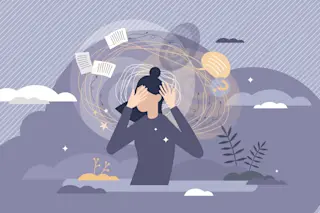Medical professionals often see patients exhibiting symptoms of more than one mental condition at a time, which are called comorbidities. However, the causes of these comorbidities involve delving into the complexity of the human brain and the myriad reasons why mental health conditions arise in the first place.
“Comorbidities are, unfortunately, common and a serious problem,” says Kristin Scaplen, an assistant neuroscience professor at Bryant University. “Research shows that the presence of comorbidity is associated with higher rates of suicidal ideations, more severe symptoms, and an overall poorer quality of life.”
Depression and anxiety are likely the most paired example in mental health comorbidities.
“According to the National Alliance on Mental Illness, approximately 60 percent of individuals suffering from depression show symptoms of anxiety and vice versa,” says Scaplen.
Scaplen adds that people suffering from depression and anxiety are also more likely to experience substance use disorders — at a ...














